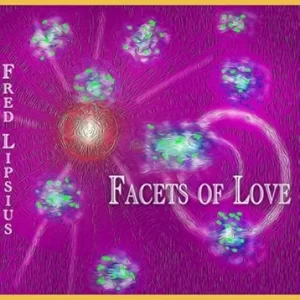 A former member of the popular Blood Sweat & Tears, Fred Lipsius is these days a professor at Berklee College of Music in Boston. Aside from his work with that popular jazz-rock band from the late 1960s to early 1970s, Lipsius still creates good work. His recent release Facets Of Love showcase his arranging and saxophone skills on several of the best love songs in jazz and pop.
A former member of the popular Blood Sweat & Tears, Fred Lipsius is these days a professor at Berklee College of Music in Boston. Aside from his work with that popular jazz-rock band from the late 1960s to early 1970s, Lipsius still creates good work. His recent release Facets Of Love showcase his arranging and saxophone skills on several of the best love songs in jazz and pop.
Opening the album with romantic fervor is the Stan Getz classic “There Will Never Be Another You.” A vibrant saxophone line moves brightly through the piece. Its enthusiastic melody speaks of a heartfelt sentiment. Its sudden dips makes its sudden rises feel like romantic enthusiasm. Its speedy resolve to twist and turn reflect a heart that is full of love. While the title may indicate the romance is over, the theme here suggests that it’s a passionate love because there is no other like it.
“Lover Man,” popularized by Billie Holiday in 1954, finds the saxophone sounding wider, playing a bluesy melody, a line that implies sorrow. The listener can picture the broken heart sitting at a bar contemplating what went wrong between him and the one he thought would last. The sax line thickness, even during its speedier intervals, feels like someone is dragging his broken heart around, feeling weighed down by it. Heartbreak sounds beautiful in Lipsius’ hands.
“Cherokee-Alto” finds the saxophone speedily taking twists and turns in its Charlie Parker melody line. Sharp, sudden notes keep emerging, dancing, darting around a piano rhythm before swiftly being replaced by a next one. To move with such zeal and precision is impressive. It also has a secondary effect on the listener. Its anxious theme inspires a variety of possible reasons why a musician was inspired to compose this. Is it based on the precarious position that the Cherokee people were placed in? That would be a distinct possibility.
Paul McCartney and John Lennon’s “And I Love Her,” arranged by Lipsius, matches saxophone and piano well. Not only does the sax replicate the emotive effect of the main melody line, the piano puts a fanciful backdrop to this rendition. It’s uncanny how well the sax line can conjure the listener’s emotional reaction to this familiar line. Sensitivity is key here as the sax’s mellifluous melody glides quite smoothly.
Spring boarding off a sensitive piano chord progression, a saxophone moves in pleasant circular motions on Frank Churchill’s “Some Day My Prince Will Come,” from the 1967 Walt Disney film Snow White And The Seven Dwarfs. It’s a pleasant contrast between the instruments that brings each one’s emotive qualities more into focus. When the saxophone shifts into a speedier tempo, the piano chords remain mellow, drawling, keeping the hopeful theme of this composition alive.
A jazz album about love would feel incomplete if it didn’t include something once recorded by Ella Fitzgerald and Louis Armstrong. Moving with cat like grace, a Lipsius saxophone line makes “Tenderly” feel like fluid motion poetry. One can practically see the sax line wiggle its way across the piece. Its eloquent motions feel romantic but it can also suggest someone shimmying around for other purposes. It’s a treat to hear how well that line travels.
Popularized by singer Jo Stafford in 1944, “It Could Happen To You” mixes tenderness, brightness, and a silken smoothness that can’t be beat. Lipsius moves his pleasant notes along the melody line with a brisk edge, pleasant music with plenty of push behind it. This captures the song’s insistence that it could happen to you.
“Cherokee-Tenor” feels just as frenetic as its alto counterpart. However, its swift moves from note to note has a different feel within each of its meters. Its higher notes are sharper than the alto version. That gives a more action packed feeling, like a movie in which cars racing around a corner go up on two wheels. Intervals of notes here might inspire a filmmaker to get busy with his stunt coordinator.
Nat King Cole’s hit number “That’s All” cannot be easily compared to other pieces. In Lipsius’ hands, its mid tempo sax line shines for its depth. Depth of feeling, depth of skill, depth of composition. It effortlessly shifts gears to other tempos, dynamics, and feeling. It feels like it could be an end of romance piece, its moody atmosphere carrying a feeling of someone dwelling on something with too much on their minds. Its consistent push of notes through their intervals keeps reminding of someone who is stuck, not ready to move on.
This plate of Lipsius’ arrangements will make a pleasant soundtrack for any date. Though it should not be saved for just any date. This is the album to play when the most incredible date of your life comes over. Bravo.

